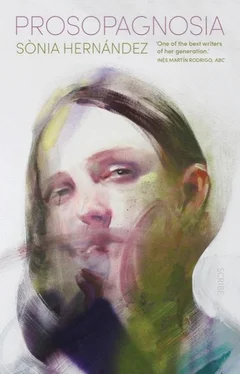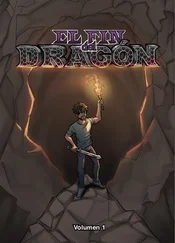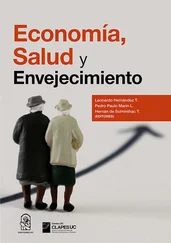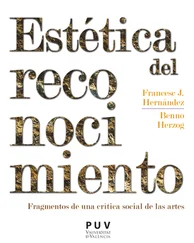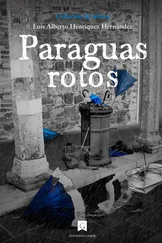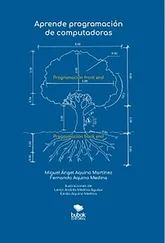A few days later, they called me at home from the school. My daughter’s teacher wished to see me. The call upset me, which is why the teacher, trying to calm me down, said that it was nothing serious, just that some of the other teachers had indicated they were worried about Berta’s recent behaviour. When we met in her office at the school, she didn’t expand much on what she’d said over the phone. My daughter was often distracted in class, and she had fainted twice. The teachers also believed there was a direct link between Berta’s fainting spells and Mario’s, who was one of her best friends. That comment seemed very strange to me, but I said I would try to talk to her, although I knew it wouldn’t be easy. When I was just about to get up and leave the office, the teacher handed me an envelope that I hadn’t noticed until that point. Then she told me that a man who had helped my daughter during one of her fainting spells was also worried about her. He had wanted to give her a painting and she refused to accept it, but he insisted she should have it, and so he’d suggested it could be given to me, even though I’d had no idea about the envelope or the painting until that very moment.
Suddenly, it became clear that the fact that Berta hadn’t accepted the man’s gift was causing the most conflict, and, apparently, the greatest concern for her teacher. She told me that the man who had done the painting was quite a famous artist, whom the father of one of the students had convinced to give a few talks and art classes after school hours. At the moment, they were considering a project proposed by the artist, along with the catalogues and paintings he had sent in, but the committee hadn’t reached a decision yet. It seemed that the art teacher hadn’t had her say yet either. In any case, she told me that it was a beautiful painting, and that Berta ought to recognise that it was a friendly gesture. In short, she should accept the gift. I didn’t know what to say, but I ended up taking the envelope with me when I left.
For a large part of my life I have been plagued by the proximity and inevitability of the end. I’m not referring to a predetermined or concrete end, but something much more general and abstract: the end of everything. Something like the spoiling of all the oxygen in the atmosphere, or the putrefaction of the environment, which any minute now might result in the great snuffing out of life. I have always felt that the end was very close to me. It’s like an endless memento mori. Exhausting.
My relationship with Pablo began when I was exactly eighteen years old. Now I’m forty-three. From the very first day when we went to the movies alone, I waited for the moment he’d tell me he was leaving me. The curious thing about all this is that he actually did leave, but he did it with so many excuses, justifications, promises, and so much twisted guilt that it was one of the few occasions in my life when I couldn’t wait until he had finished speaking. In fact, it was as if — just like I had always felt — we had been living a continuous ending, as if our relationship had never even had a beginning.
I’m forty-three years old. Pablo left home on the day of my birthday. He never gave me a single memorable present. Being forty-three years old places me near the end of something. The end of my youth? Perhaps I left that behind a long time ago. Unlike other people when they have their first child, I didn’t stop feeling young once Berta was born. Back then I already felt close to the end. I can recall the fear I felt, constantly asking myself what would happen afterwards. When Pablo left me, he blurted out that I had a really strange notion of reality. Now I can laugh about that idea. I don’t even think his sentence was put together properly.
In any case, it’s at least a little paradoxical that he should be the one to tell me such a thing. I would have liked to have known what his reality would have been like if it weren’t for me. But that doesn’t matter anymore. Now I’m just worried about Berta and this silly habit she’s had for a while. I’m not sure how responsible I am for it. I’m her mother.
Berta is my daughter, and I am twenty kilos overweight. A few months ago, I was already twenty kilos overweight, so it’s possible now that I’ve added a few kilos more. Perhaps the only reason I’ve decided to write all this down is to become the protagonist of one of those stories of personal triumph in which someone leaves behind all their crippling fears. Writing about how difficult it is to look after yourself consciously, to maintain a healthy diet, to stave off self-destructive impulses and morbid feelings in order to keep things balanced, to find the secret to finally lose weight. I could write a diary — or even better, a blog, like so many people of my generation — explaining all my feelings. If I managed to maintain the diary, I would prove to myself that I’m capable of persevering with things, of creating my own storyline that arrives at a conclusion. That way, I could dissect my problems and look at them from a different perspective, stripping them of dread to the point where I could realise that I was capable of facing up to them. And, by the end, I would be a new woman with a different appearance and a different attitude. That would be my victory.
But I don’t think any of that is going to happen. If I have started writing, it’s because once again I feel like I’m in one of those moments where I can sense the end of something. The night Pablo told me he was leaving, before he began his endless speech, I already felt that something was about to happen, although I didn’t know exactly what. And I had no idea that he had been in love with another person for a long time already.
Shortly after that, I began to scribble down these notes because I felt that something was going to happen to Berta. There were some mornings, as I watched her leave the house, that I became terrified by all the things that might happen to her while she was out of my sight. Soon, I will lose whatever I’m feeling now. We spend our lives losing things. Sometimes I think that all the changes I’ve experienced across my life haven’t amounted to anything; that in fact it’s quite the opposite. All they’ve done is pull apart the world I was born into and that was rightfully mine.
When the artist accompanied my daughter home and burst into our lives, it became the cause of a new conflict. She distrusted him and was irritated by my conciliatory spirit, which I had only adopted to try to follow her teacher’s instructions.
‘Anyway, the painting is really ugly,’ she said.
‘That hardly matters. That man is just being friendly. He’s worried about you. And I wouldn’t be caught up in this mess if you weren’t making yourself faint at school. I hope you plan on to telling me what that’s all about. I’ve booked you an appointment with the doctor for a full check-up.’
Berta was furious. Perhaps it fell to me, her mother, to calm her down, but I was unable to do it.
‘I don’t need to go to the doctor, because there’s nothing going on with me, and that man can just leave me alone already,’ she exploded. ‘I’m sick of running into him all over the place. There’s a reason I gave his envelope back to the teacher, you know. Why did you have to bring it home? Why can’t you all leave me in peace for once?’
I had no choice but to face up to a situation that had become distressing. I thought that by forty-three I would have arrived at an age where certain abstract anxieties would have gone away, and that the time would have come to defeat the scourge of stark reality. Besides, Pablo’s abandoning me had been a warning sign that I was now in the definitive stage of my life. Reality was calling out to me through Berta, telling me to pay attention to the truly important things: I should focus on my career, which I no longer cared for, but which was difficult to change or improve; and I had to look out for my daughter and make sure that as far as possible, both our lives would be the product of pleasant moments, free of anxiety, fear, and yearning. This was one of the conclusions at which I had arrived after many sessions of psychotherapy. And while I was in the middle of this process, the artist appeared, pushing me into an awkward situation. As an adult, I should have been able to thank him for the care he had shown my daughter. That way, I could situate the relationship with that man within the normal, correct parameters of social interaction, in a way that would pose no threat to Berta. The best thing would be to accept the situation as just one more test of maturity.
Читать дальше
